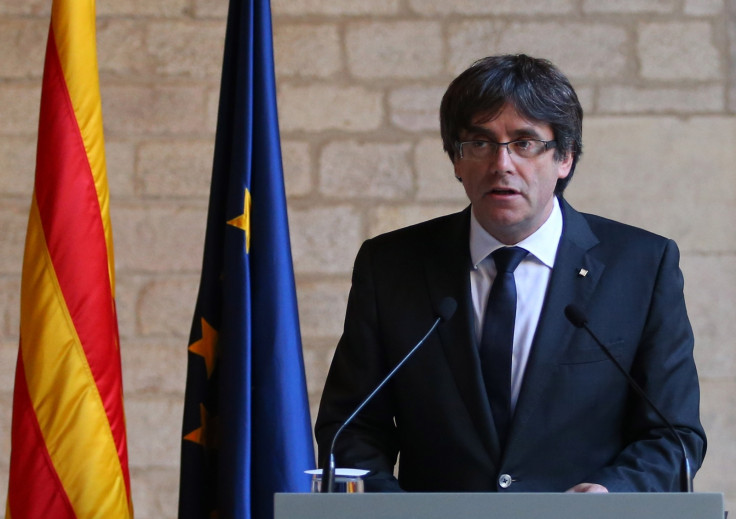Catalonia parliament votes to declare independence from Spain
Move comes in the wake of a constitutional crisis sparked by the region's independence referendum.
The Catalan parliament has voted to declare independence from Spain. The move comes in the wake of a constitutional crisis sparked by the region's independence referendum.
The motion was passed with 70 votes in favour, 10 against and two blank ballots, the assembly's speaker said, according to Reuters.
Members of the Socialist Party, the People's Party (PP) and Ciudadanos left the parliament in protest before the vote, leaving just pro-independence groups in the chamber, Reuters reported.
The motion passed as Madrid is due to vote on a plan by the government to remove Catalonia's autonomous powers.
The senate is expected to vote in favour of Prime Minister Mariano Rajoy's plan to trigger Article 155 of the Constitution which will strip the region of its powers, a move often referred to as 'the nuclear option'. An absolute majority of the Senate must approve the motion.
2.2 million people in Catalonia went to the polls on 1 October to vote in the referendum. Ahead of the vote, Madrid declared the referendum illegal. A police operation ensued, preventing many from voting and sparking criticism for the police's use of force.
Some 770,000 votes were not cast due to polling stations being closed. 90% of those who cast their ballot voted 'yes' for independence, although the turnout was around 43% and many who did not support independence reportedly did not turn up to vote.
Tensions between the autonomous region and the central government have soared since.
Catalonia's president Carles Puigdemont signed a declaration of independence following the referendum, but called for negotiations between regional and central authorities, angering hard-line separatists.
Puigdemont attracted further criticism after he announced on 26 October that he would not call early elections in the region.
The crisis sparked by the referendum led some to call for snap elections in December to ease tensions due to beliefs that Article 155 could not be imposed during an election campaign.
Article 155 of the Spanish Constitution
1. If an Autonomous Community does not fulfil the obligations imposed upon it by the Constitution or other laws, or acts in a way seriously prejudicing the general interests of Spain, the Government, after lodging a complaint with the President of the Autonomous Community and failing to receive satisfaction therefore, may, following approval granted by an absolute majority of the Senate, take the measures necessary in order to compel the latter forcibly to meet said obligations, or in order to protect the above-mentioned general interests.
2. With a view to implementing the measures provided in the foregoing clause, the Government may issue instructions to all the authorities of the Autonomous Communities.























